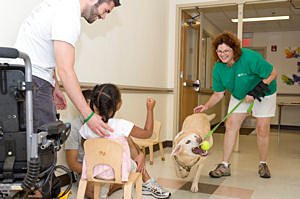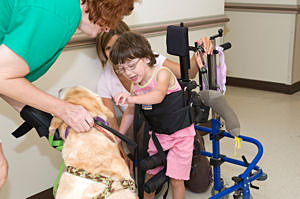- Rozovsky wins prestigious NSF Early Career Award
- UD students meet alumni, experience 'closing bell' at NYSE
- Newark Police seek assistance in identifying suspects in robbery
- Rivlin says bipartisan budget action, stronger budget rules key to reversing debt
- Stink bugs shouldn't pose problem until late summer
- Gao to honor Placido Domingo in Washington performance
- Adopt-A-Highway project keeps Lewes road clean
- WVUD's Radiothon fundraiser runs April 1-10
- W.D. Snodgrass Symposium to honor Pulitzer winner
- New guide helps cancer patients manage symptoms
- UD in the News, March 25, 2011
- For the Record, March 25, 2011
- Public opinion expert discusses world views of U.S. in Global Agenda series
- Congressional delegation, dean laud Center for Community Research and Service program
- Center for Political Communication sets symposium on politics, entertainment
- Students work to raise funds, awareness of domestic violence
- Equestrian team wins regional championship in Western riding
- Markell, Harker stress importance of agriculture to Delaware's economy
- Carol A. Ammon MBA Case Competition winners announced
- Prof presents blood-clotting studies at Gordon Research Conference
- Sexual Assault Awareness Month events, programs announced
- Stay connected with Sea Grant, CEOE e-newsletter
- A message to UD regarding the tragedy in Japan
- More News >>
- March 31-May 14: REP stages Neil Simon's 'The Good Doctor'
- April 2: Newark plans annual 'wine and dine'
- April 5: Expert perspective on U.S. health care
- April 5: Comedian Ace Guillen to visit Scrounge
- April 6, May 4: School of Nursing sponsors research lecture series
- April 6-May 4: Confucius Institute presents Chinese Film Series on Wednesdays
- April 6: IPCC's Pachauri to discuss sustainable development in DENIN Dialogue Series
- April 7: 'WVUDstock' radiothon concert announced
- April 8: English Language Institute presents 'Arts in Translation'
- April 9: Green and Healthy Living Expo planned at The Bob
- April 9: Center for Political Communication to host Onion editor
- April 10: Alumni Easter Egg-stravaganza planned
- April 11: CDS session to focus on visual assistive technologies
- April 12: T.J. Stiles to speak at UDLA annual dinner
- April 15, 16: Annual UD push lawnmower tune-up scheduled
- April 15, 16: Master Players series presents iMusic 4, China Magpie
- April 15, 16: Delaware Symphony, UD chorus to perform Mahler work
- April 18: Former NFL Coach Bill Cowher featured in UD Speaks
- April 21-24: Sesame Street Live brings Elmo and friends to The Bob
- April 30: Save the date for Ag Day 2011 at UD
- April 30: Symposium to consider 'Frontiers at the Chemistry-Biology Interface'
- April 30-May 1: Relay for Life set at Delaware Field House
- May 4: Delaware Membrane Protein Symposium announced
- May 5: Northwestern University's Leon Keer to deliver Kerr lecture
- May 7: Women's volleyball team to host second annual Spring Fling
- Through May 3: SPPA announces speakers for 10th annual lecture series
- Through May 4: Global Agenda sees U.S. through others' eyes; World Bank president to speak
- Through May 4: 'Research on Race, Ethnicity, Culture' topic of series
- Through May 9: Black American Studies announces lecture series
- Through May 11: 'Challenges in Jewish Culture' lecture series announced
- Through May 11: Area Studies research featured in speaker series
- Through June 5: 'Andy Warhol: Behind the Camera' on view in Old College Gallery
- Through July 15: 'Bodyscapes' on view at Mechanical Hall Gallery
- More What's Happening >>
- UD calendar >>
- Middle States evaluation team on campus April 5
- Phipps named HR Liaison of the Quarter
- Senior wins iPad for participating in assessment study
- April 19: Procurement Services schedules information sessions
- UD Bookstore announces spring break hours
- HealthyU Wellness Program encourages employees to 'Step into Spring'
- April 8-29: Faculty roundtable series considers student engagement
- GRE is changing; learn more at April 15 info session
- April 30: UD Evening with Blue Rocks set for employees
- Morris Library to be open 24/7 during final exams
- More Campus FYI >>
8:14 a.m., Sept. 16, 2009----They say you can't teach an old dog new tricks, but through a partnership with PAWS for People, children with disabilities at the University of Delaware's Early Learning Center (ELC) are receiving support services that address their specific needs and help them with day-to-day tasks, thanks to a group of specially trained dogs.
Since the fall of 2008, volunteers from the Pet Therapy Team at PAWS for People have visited the ELC to work with children in group and individual settings. Laura Morris, associate director of the ELC, said approximately seven teams of volunteers and their dogs come to the Wyoming Road complex to work with the children.
Morris said that the ELC-PAWS alliance has provided new opportunities for teachers and therapists to address individual and group goals through meaningful and purposeful learning opportunities.
At a recent visit to the ELC, Hepsi Zsoldos, a volunteer on the PAWS Pet Therapy Team, and her energetic American yellow lab, Shadow, worked with Jessica, 5, and Brionnah, 3, two children with disabilities that affect their mobility and capacity to communicate with others. Accompanying the team was Tracy Stoner, a physical therapist at the ELC.
Zsoldos and Shadow helped the girls become more familiar with their new power chairs as they roamed through the halls of the ELC. The girls also played fetch with the dogs. For Jessica, this was her last time working with PAWS at the ELC, as her first day of school, with her power chair, was taking place the following week.
“I feel eager to help motivate the kids, to get them to want to move toward something,” Zsoldos said. “Watching the kids achieve the goal of cognitively putting it all together and having the desire to get from point A to point B is thrilling and it gives me a feeling of tremendous accomplishment.”
Zsoldos, a former teacher, said she thinks having the dogs accompany the young children is beneficial, since the dogs are non-judgmental. Morris agreed, adding that the dogs are very patient and nurturing, and that they provide children the opportunity to make mistakes in a safe and supportive environment.
Morris said the ELC benefits greatly from the PAWS program, as the volunteers are able to work with the therapists and provide the time and attention that is required to help the children strengthen and build their muscles, which can end up being a significant time commitment.
“It can be difficult for therapists to come up with meaningful and engaging reasons for children to complete the desired task. Doing something difficult just because an adult asked them to do it is often not a priority for the preschooler,” she said. “Working with the PAWS therapy teams, therapists are able to identify meaningful reasons for the child to practice required skills.”
In addition to one-on-one attention for children with disabilities, the PAWS teams work with larger groups of students as well.
An agility course set up by a PAWS volunteer helps children develop math skills, including number recognition and number formation. The children write numbers on cards to place on each obstacle of the course, and as they go through the course, they are able to follow and recognize the numerical sequence. The course also teaches children about measuring skills, using tools such as rulers or tape measures to establish the distance between obstacles on the course.
At the same time, the course helps establish coordination and balance, as well as working on obesity prevention, by having children move through the course, following the example of their PAWS partner.
Interacting with the dogs also helps children conquer their fear of dogs, Morris said, as the children interact with the therapy dog with the support and direction of a trained adult.
“It's beyond bringing in dogs for petting or for show-and-tell,” she said. “The PAWS teams come to the ELC and help all the students here, which is an invaluable experience for them.”
Article by Jon Bleiweis
Photos by Kathy F. Atkinson




